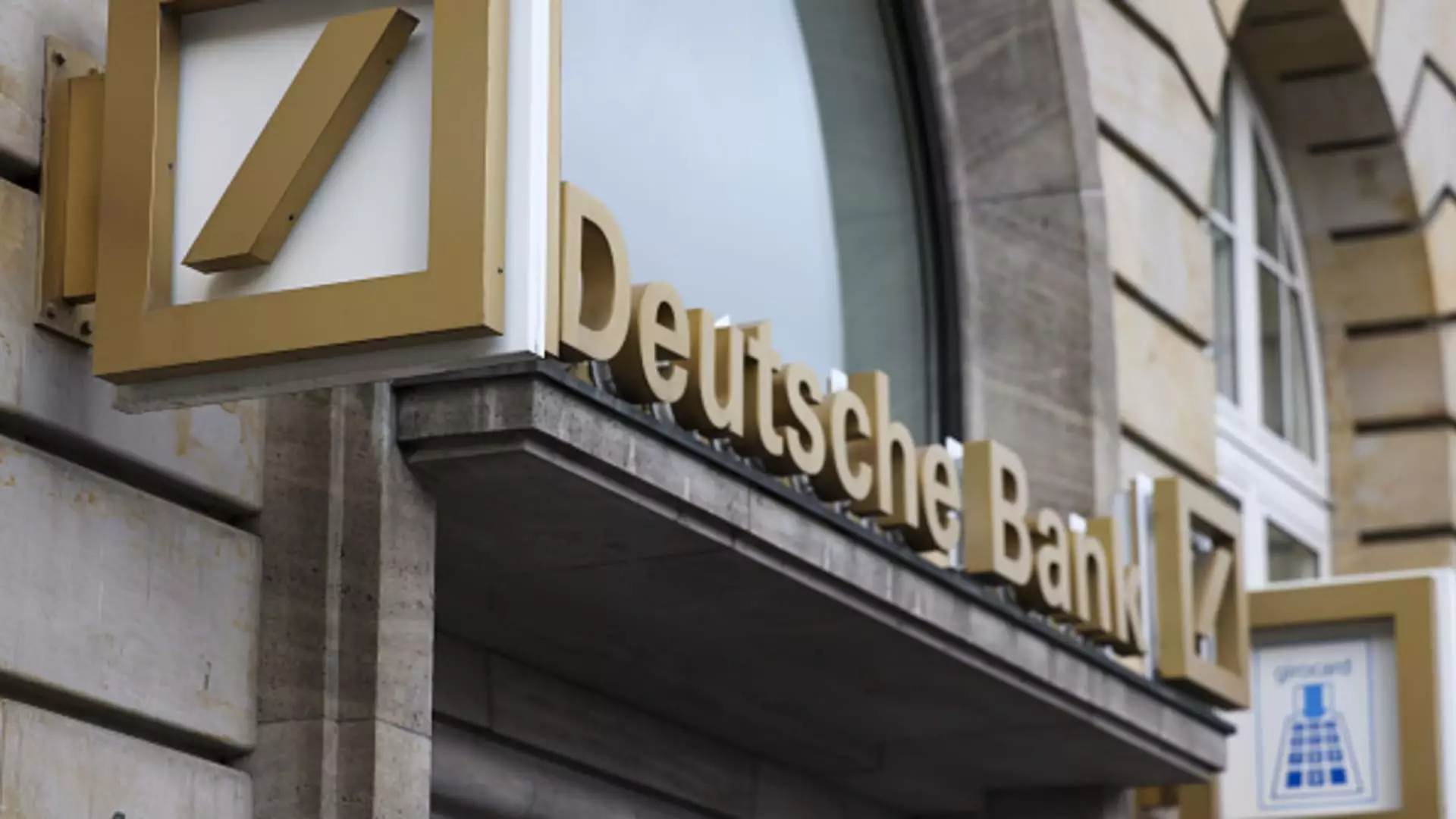Deutsche Bank’s recent financial results for the third quarter reveal a remarkable resurgence following a disappointing dip earlier in the year. The bank reported a substantial net profit of 1.461 billion euros ($1.58 billion), surpassing analyst predictions of 1.047 billion euros. This performance not only marks a significant rebound from a loss of 143 million euros in the previous quarter but also demonstrates the potential for sustained profitability amidst the evolving banking landscape in Europe. Revenue figures reached 7.5 billion euros, slightly exceeding the forecast of 7.338 billion euros as estimated by analysts at LSEG.
Key Highlights and Ratios
Delving deeper into Deutsche Bank’s performance, notable figures stand out. The profit before tax registered at 2.26 billion euros—a remarkable 31% increase compared to the same quarter of the previous year. Furthermore, the CET 1 capital ratio, a critical measure of a bank’s financial health, improved from 13.5% in the second quarter to 13.8%. This trend towards stronger solvency reinforces confidence in the bank’s financial stability and suggests robust management practices are in place.
The return on tangible equity (ROTE) reached 10.2%, an encouraging uptick from 7.3% year-over-year. However, when adjusted for litigation provisions, this figure sees a decline to 7.6%, indicating that legal challenges still pose a risk to the bank’s bottom line. The bank had previously faced litigation stemming from its acquisition of Postbank, but with about 60% of the plaintiffs settling earlier in August, this aspect of financial uncertainty is beginning to wane, contributing positively to the latest profit statement.
The settlement of litigation claims, particularly involving the Postbank acquisition, signifies a crucial turning point for Deutsche Bank. The bank benefited from a partial release of 440 million euros in litigation provisions during the third quarter, which substantially bolstered profits. This development also shaped management’s decision to apply for a new share repurchase program, signaling confidence in future earnings and shareholder returns. CEO Christian Sewing emphasized this trajectory, affirming the bank’s commitment to “profitable growth” and intentions to exceed original objectives for capital distributions.
A key contributor to Deutsche Bank’s recovery has been its investment banking division, which posted a revenue increase of 11% year-over-year, reaching 2.5 billion euros. The growth in fixed income and currency units highlights the bank’s adaptability and strategic positioning to capture market opportunities. Similarly, asset management revenues showed resilience, with 660 million euros in net revenues—again reflecting an 11% increase year-on-year. These strong performances across core divisions suggest robust operational frameworks that can weather current economic challenges.
Industry Context and Future Outlook
The European banking sector is encountering considerable pressure to sustain growth in a landscape characterized by declining interest rates and competitive performance against U.S. peers. While Deutsche Bank has successfully navigated this terrain, analysts caution that maintaining the current return on tangible equity margins will necessitate aggressive cost management. Recent insights from McKinsey’s Global Banking Annual Review emphasize the need for banks to streamline operations significantly to adapt to potential revenue declines.
In response, Deutsche Bank has initiated a cost-cutting strategy aimed at reducing its workforce by 3,500 employees by 2025, including prior cuts. This proactive measure is pivotal in ensuring long-term competitiveness. As the bank aims for a workforce of 90,236, achieving efficiency becomes imperative.
Looking Ahead: Challenges and Competitive Dynamics
As Deutsche Bank continues to navigate market dynamics, it has distanced itself from any merger speculation with local competitor Commerzbank, which is now facing potential acquisition interests from Italy’s Unicredit. This decision underscores Deutsche Bank’s strategy to focus on its organic growth pathways.
As other European banks begin to report their own earnings, market observers will closely monitor how Deutsche’s results set the tone for the banking sector. The road ahead will require diligent management of costs, effective response to external pressures, and an unwavering focus on boosting profitability. Success in these areas could position Deutsche Bank as a resilient player amidst an ever-shifting financial landscape.


Leave a Reply